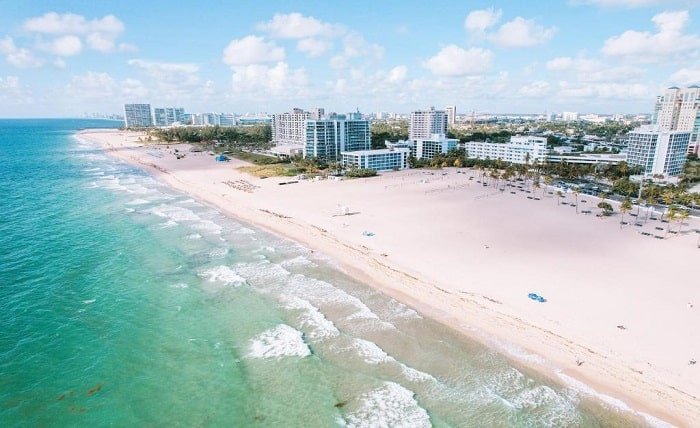With Fort Lauderdale’s warm climate and abundant sunshine, backyard pools are a common feature, bringing relaxation, fun, and exercise to homeowners. However, pools also come with potential risks, and practicing pool safety is crucial. Whether you’re a new pool owner or have had one for years, these essential safety tips can help prevent accidents, protect your loved ones, and keep your pool a safe place to enjoy year-round.
1. Supervision and Child Safety Measures
Children are naturally drawn to water, and unfortunately, they are at the highest risk for pool-related accidents. Vigilance and proactive safety measures are key to preventing these incidents.
- Never Leave Children Unattended: A responsible adult should always supervise children around the pool. Designate a “water watcher” who avoids distractions, such as reading or using a phone, and keeps constant visual contact with those in and around the pool.
- Install Barriers and Safety Covers: Florida law requires residential pools to have a barrier, typically a fence at least four feet tall with a self-closing, self-latching gate. Pool covers add an extra layer of security, and they should be secured tightly whenever the pool is not in use.
- Use Alarms and Motion Detectors: Pool alarms, which sound an alert if someone enters the water, and gate alarms, which notify when the pool gate is opened, can add extra safety, especially for families with young children.
Training children in basic water safety and swimming skills is also beneficial. Fort Lauderdale offers many programs where children can learn to swim, an important skill that could save lives.
2. Electrical Safety Precautions
A pool environment is complex, often involving electrical systems that can pose hazards if not maintained properly. Water and electricity are a dangerous combination, and electrical safety should never be overlooked.
- Maintain Pool Equipment Regularly: Pool pumps, heaters, and lights are essential components, but they require regular inspections and maintenance to ensure they are functioning safely. For comprehensive checks and any repairs, consider using a professional pool service Fort Lauderdale homeowners trust.
- Use Ground Fault Circuit Interrupters (GFCIs): GFCIs automatically shut off the electrical circuit if they detect any irregularity. This is particularly important for poolside outlets, underwater lighting, and other pool electrical devices.
- Avoid Cords Near the Pool: Make sure that all electrical devices, such as radios, speakers, and phone chargers, are kept a safe distance from the water. When using outdoor lighting or power tools around the pool, always follow manufacturer guidelines to prevent accidents.
Hiring a professional pool cleaning service can also ensure that the pool’s electrical components are cleaned and maintained with care, reducing the risk of electrical hazards.
3. Keeping the Pool Clean to Prevent Accidents
A clean pool isn’t just about aesthetics—it’s a critical safety measure. Hazards like algae buildup, slippery surfaces, and bacteria growth can lead to accidents and health issues if not properly managed.
- Schedule Regular Cleaning: Regular pool cleaning not only keeps the water clear but also prevents harmful bacteria and algae from accumulating. Algae buildup on pool steps, ladders, and the floor can create slippery surfaces, increasing the risk of slips and falls. Professional pool cleaning service Fort Lauderdale experts can take care of these tasks and ensure that your pool is safe and healthy.
- Check and Balance Water Chemistry: A pool with balanced chemicals reduces the risk of eye, skin, and respiratory irritation, making it safer for swimmers. Chlorine and pH levels should be checked frequently to keep the water in optimal condition.
- Inspect the Pool Area for Hazards: Regularly scan the pool deck for potential trip hazards like toys, equipment, or debris. A safer swimming environment may be created and avoidable mishaps can be avoided by keeping the area clutter-free.
4. First Aid Tips for Pool-Related Emergencies
Despite taking precautions, accidents can still happen. Being prepared to respond promptly can make a difference in pool-related emergencies.
- Learn CPR and Basic First Aid: Knowing CPR and how to respond to choking, drowning, or other emergencies can be life-saving. Many local organizations in Fort Lauderdale offer first-aid courses, and it’s a good idea for pool owners to refresh these skills regularly.
- Keep a First Aid Kit Nearby: A well-stocked first aid kit should be easily accessible and include items like antiseptic wipes, adhesive bandages, burn ointments, and gauze. Pool-specific items, such as flotation devices and scissors (for cutting away pool covers if someone becomes trapped), can be invaluable in an emergency.
- Post Emergency Contact Information: Keep emergency numbers, including 911 and poison control, visible in the pool area. Additionally, make sure all family members know how to call for help in case of an emergency.
5. Pool Safety Education and Awareness
Educating everyone in your household on pool safety is key to creating a safe pool environment. Have regular conversations with children and guests about pool rules, such as no diving in shallow water, no running on the pool deck, and how to safely enter and exit the pool. Additionally, guests should be informed of any particular hazards unique to your pool setup.
Investing time in educating your family on pool safety can prevent accidents and create a safer environment for everyone.
Final Thoughts
Owning a pool is a joy and a privilege, but it comes with responsibilities that can’t be overlooked. By implementing these safety tips, you can significantly reduce the risk of pool-related accidents and create a safer environment for everyone who enjoys your pool. Regular cleaning, vigilant supervision, and adherence to electrical safety measures play a major role in accident prevention. With these guidelines, you can focus on creating lasting memories with family and friends while keeping safety at the forefront.
Fort Lauderdale residents should make the most of their pool while prioritizing these essential safety measures for a secure, enjoyable, and accident-free swimming season.

